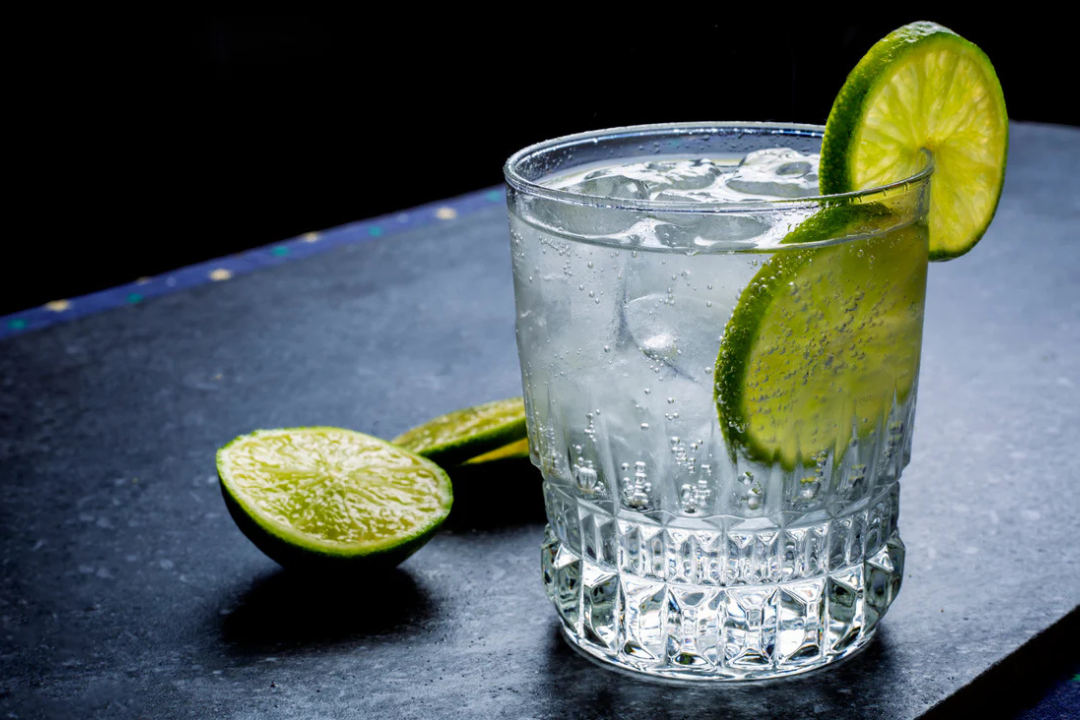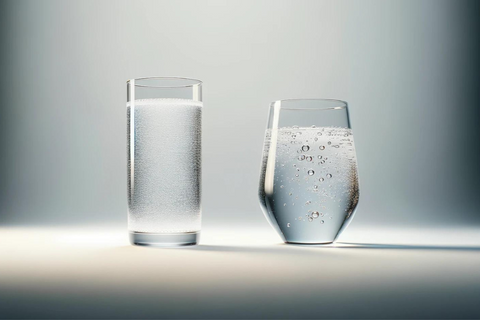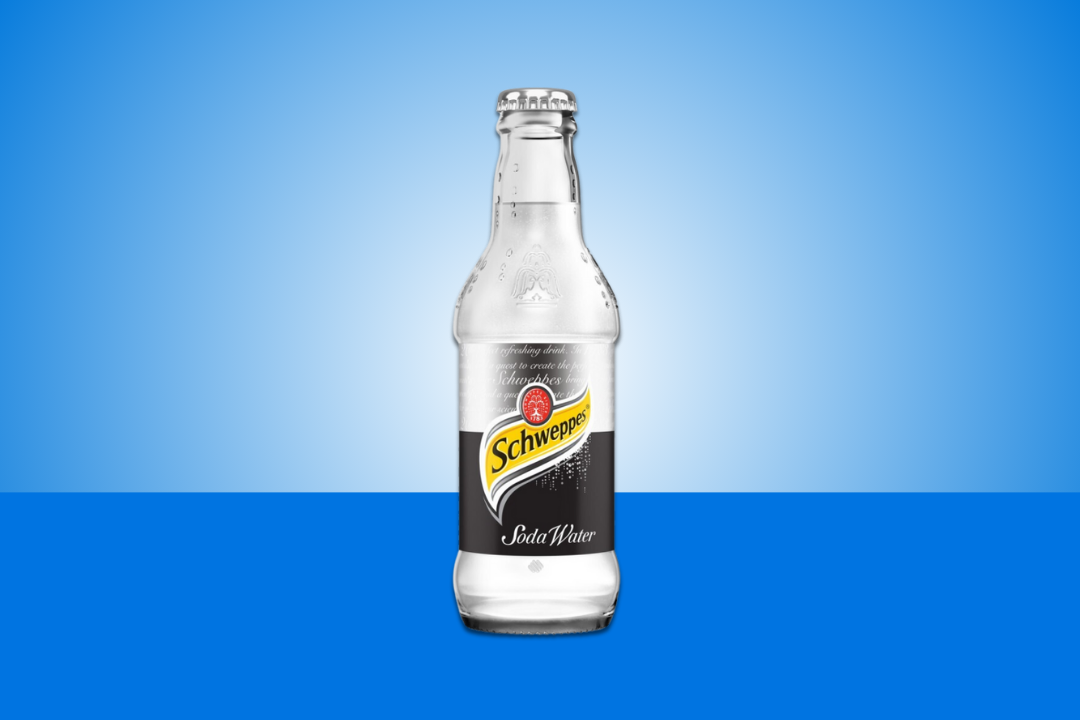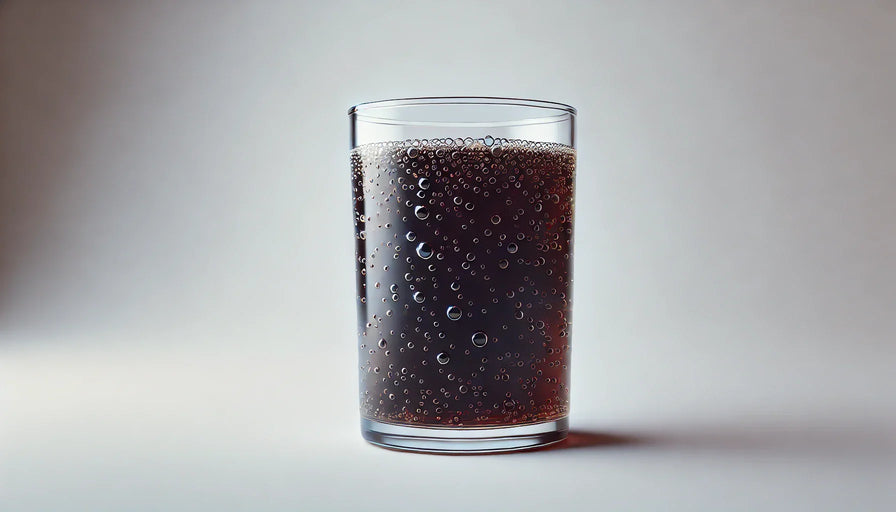
What's the Difference Between Soda Water vs. Club Soda vs. Sparkling Water vs. Tonic Water?

Summary
Soda water, seltzer, club soda, tonic water, and sparkling mineral water all have unique flavors, ingredients, and uses. This guide explores their differences, helping you understand their distinct characteristics—from plain carbonation to added minerals or flavors. For the full comparison, read on below.
More and more people are looking to improve their health by paying attention to what they consume, down to the drinks they have. Carbonated water has become a go-to alternative to soda because it's healthier and still satisfies that craving for something fizzy.
The market has become saturated with all different types of carbonated water though, so you might be wondering what makes each kind unique. We encourage you to easily navigate this article using the index below:
Table of contents

Various types of carbonated water
The carbonated beverage industry is saturated with competitive bubbly drinks that fall under their own categories entirely.
Some types of carbonated water you may find at the store are:
When you're shopping at the store, it might be confusing to pick the one that best fits your needs so let's explore each one of them.
What is soda water?
Commonly comparable to sparkling water and seltzer water, soda water is carbonated water that is infused with CO2 and bicarbonate of soda (baking soda). This addition not only offers a subtle taste distinction from plain sparkling water but also renders soda water particularly beneficial for a range of culinary and beverage uses.
According to an interview held with Jennifer Christman, MHA, RDN, LDN, CPT, the director of clinical nutrition at OPTAVIA, Christman stated individuals may find a different kind of stomach relief than just plain sparkling water. "Drinking water with a spoonful of baking soda helps relieve indigestion. That’s because baking soda—which is sodium bicarbonate—is a base that can, if used in certain quantities, lower the pH of an acidic solution," says Christman.
While soda water vs club soda may seem similar as well, they do have some differences. The main difference between the two lies in their ingredients.
While both are carbonated water, club soda contains added minerals such as potassium bicarbonate, sodium chloride, and potassium sulfate. They may be comparable when ordering at a bar or restaurant, however, soda water does not contain nearly the same amount of minerals as club soda.
Soda water calories
Soda water itself, in its basic form, does not contain sugar and therefore has 0 zero calories. It is essentially water that has been carbonated and infused with bicarbonate of soda, which does not add any sweeteners or carbs to the drink.
Seltzer water and soda water often get confused as they are both simple in ingredient contents, however, soda water contains baking soda where seltzer does not.
Key takeaways:
- Soda Water is carbonated with CO2 and baking soda.
- Plain soda water has zero calories; check labels for added ingredients.
- Soda water includes baking soda, unlike seltzer.
- Soda water vs club soda comes down to additives; club soda has added minerals.
Related read: What's the Difference Between Tonic Water and Soda Water?

What is club soda?
Club soda is made bubbly by infused carbon dioxide and added minerals, such as potassium sulfate and sodium chloride. This beverage provides a mild salty taste, which makes it perfect for adding to alcoholic drinks.
Club soda calories
Much like soda water, club soda typically contains no sugar and has zero calories in its plain form. The added minerals do not contribute to its calorie content, making it an excellent choice for those monitoring their calorie intake.
Again, it is crucial to check the labels of purchased club soda as some brands may add flavorings or sweeteners that increase the calorie count.
Key takeaways:
- Club soda is made with carbon dioxide and added minerals like potassium sulfate and sodium chloride.
- Plain club soda has zero calories; added minerals don’t contribute to the calorie content.
Related read: Soda Water vs Club Soda: What's the Difference?
What is tonic water?
Tonic water is made from carbonated water that has been sweetened with high-fructose corn syrup or sugar along with added quinine. Its distinct flavor, often described as bitter and medicinal, makes it a popular mixer for cocktails such as gin and tonics.
The U.S. Food and Drug Administration (FDA) began regulating the amount of quinine in beverages in the 70's and 80's. The FDA set a limit not to exceed 83 parts per million and the label "shall bear a prominent declaration of the presence of quinine," states the Code of Federal Regulations, Title 21, Section 172.575.
Out of these provided carbonated beverages, tonic water contains the highest form of added ingredients and is not recommended to drink straight. Tonic water also doesn't typically contain added minerals like many other carbonated beverages.
Tonic water calories
Unlike its sparkling counterparts, tonic water is not calorie-free due to the added sweeteners. A typical serving of tonic water can contain between 80-130 calories, making it the highest-calorie option among carbonated waters.
This added calorie content is something to consider when using tonic water as a mixer in cocktails, especially for those who are mindful of their sugar and calorie intake.
Key takeaways:
- Tonic water is carbonated with CO2, sweeteners, and quinine.
- It is popular in cocktails but not typically consumed alone.
- Contains 80-130 calories per serving due to added sugars, making it the highest-calorie carbonated option.
- Unlike other fizzy drinks, tonic water doesn’t typically contain added minerals.
Related read: The Differences Between Tonic Water and Club Soda

What is seltzer water or sparkling water?
The simplest form of carbonated water is seltzer, which is just carbonation added to filtered water. Once any flavoring, additive, or alteration is made to the carbonated water, it can no longer be classified as a plain seltzer.
You can thank Joseph Priestley, the inventor of sparkling water, for the evolution of carbonated beverages. In 1767, Priestley discovered a method to infuse water with carbon dioxide by suspending a bowl of water above a beer vat at a local brewery in Leeds, England.
Priestley himself described the pleasant taste of the water treated in this manner as “peculiarly pleasant and refreshing.” His initial writings on this process were published in a 1772 paper titled "Impregnating Water with Fixed Air."
Many also refer to seltzer water as sparkling water. These terms are interchangeable as at the end of the day, they are simply filtered water forced with carbon dioxide.
Seltzer water or sparkling water calories
Seltzer water or sparkling water, in its unflavored form, contains zero calories. This makes it an excellent choice for individuals looking to maintain or manage their weight, as it can serve as a refreshing, calorie-free alternative to sugared beverages.
Brands like LaCroix and Bubly offer flavored sparkling waters that still claim to have 0 calories, primarily using natural essences to achieve their taste without adding sugar or artificial sweeteners. On the other hand, some brands such as Spindrift can have up to 17 calories in their grapefruit-flavored seltzer water.
Key takeaways:
- Seltzer is carbonated water, without any additives–interchangeable with sparkling water.
- Unflavored seltzer has zero calories.
- Some brands add natural flavors with no calories, while others, like Spindrift, can have up to 17 calories.
Related read: What is Aerated Water?
What is sparkling mineral water?
Unlike seltzer water and regular sparkling water, sparkling mineral water is naturally carbonated and sourced from underground springs. This type of water has a unique taste because it absorbs minerals as it bubbles up from the ground.
Sparkling mineral water calories
At its core, sparkling mineral water is calorie-free as it is naturally sourced from underground springs.
Some brands such as San Pellegrino's flavored sparkling waters can contain upwards of 30 calories per serving, due to the addition of natural sweeteners and fruit juice concentrates. Where brands such as Perrier also offer flavored sparkling mineral water with calories up to 10 per serving.
Key takeaways:
- Sparkling mineral water is naturally carbonated, and sourced from underground springs.
- Typically, it contains zero calories, but some flavored varieties can have 10-30 calories.

What are the benefits of drinking carbonated water?
Drinking seltzer or sparkling water, club soda, tonic water, and sparkling water all offer different benefits as they all have very different ingredients; either natural or added.
Health benefits of seltzer water
Sparkling water/seltzer water is commonly mistaken as an unhealthy beverage. There have been myths about whether CO2 causes tooth decay, or if consuming regular bubbles leads to a high probability of gas and bloating. These false accusations have been debunked many times and sparkling water has been found to actually have great health benefits!
From aiding migraines to minimizing bloating to reducing bad breath, sparkling water, or seltzer water, can be a powerhouse in the aid of natural bodily occurrences. It can also be used to help soothe digestive woes such as heartburn and indigestion due to its neutralizing effect on stomach acids.
Not to mention it is the healthiest carbonated beverage on the market due to its lack of added sugars or sodium and is lower in calories than other carbonated beverages like soft drinks.
Related Read: Why Do People Drink Sparkling Water?
Health benefits of soda water
Soda water is quite comparable to the benefits found in plain sparkling water, but it adds an extra layer of appeal through the added bicarbonate soda. By consuming soda water, you can aid in an additional level of digestive relief due to the structure of bicarbonate soda interacting with the acid found in the stomach- providing a possible neutralizing effect that can reduce symptoms of heartburn.

Health benefits of club soda
Club soda has the same health benefits as seltzer water but with the added benefit of minerals which can help provide additional beneficial electrolytes for your body! If you are mineral deficient, consider adding club soda to your diet as an extra boost for your daily minerals.
Health benefits of tonic water
Tonic water is slightly sweetened with high-fructose corn syrup or sugar and flavored with quinine to give it a slightly bitter taste. We would not say necessarily that tonic water is healthy to consume in large doses or regularly, however, Quinine is known for its medicinal properties. Quinine has been known to reduce fever, treat malaria, and even aid in leg cramps, making it the most healthy ingredient found in tonic water, not including water of course.
Health benefits of sparkling mineral water
Sparkling mineral water is the most natural out of all the carbonated beverages. Just because it is natural though, doesn't mean you will enjoy the taste. Due to its high doses of natural bubbly minerals found in underground springs, many have found sparkling mineral water to be a little too bitter for their liking.
Whereas others rave about its unique flavor and drink it regularly. If you are looking for a boost of natural minerals, consider sparkling mineral water for its mineral dense health benefits.
Overall, each type of carbonated beverage offers different benefits that can help contribute to a healthy lifestyle. Whether you choose soda water, club soda, tonic water, or sparkling mineral water - it's important to read the labels carefully and choose one that suits your individual needs.

Common FAQs about carbonated water
How is carbonated water made?
Seltzer, or sparkling water, is made by carbonating filtered water with added carbon dioxide gas. This process involves using a device to inject the gas into the water and to create bubbles of CO2 that dissolve in the liquid.
Many sparkling water enthusiasts use an at-home soda machine and refill their CO2 canisters with an online CO2 exchange program. Soda water takes this a step further. Instead of simply infusing the filtered water with CO2 gas, bicarbonate soda is also infused alongside the CO2.
Club soda is similarly created, except mineral salts are added to give it an additional taste and flavor profile. These minerals can include potassium bicarbonate, potassium sulfate, disodium phosphate, or other natural flavors depending on the manufacturer's specific recipe.
The addition of these minerals also increases the sodium content in club soda compared to seltzer or sparkling water. So if you're looking for a more health-conscious option, make sure you choose one that has no added salt or flavors!
Tonic water is made differently than seltzer or club soda. It is carbonated with added quinine, which gives it a much stronger flavor compared to other types of carbonated water. This beverage also contains high-fructose corn syrup or sugar, so make sure to check the label before you purchase it if you're looking for an option that's lower in sugar content.
Sparkling mineral water is made by tapping or pumping naturally carbonated water that is sourced from underground springs. This type of beverage doesn't contain any added ingredients, but it does have minerals that are absorbed into the water as it bubbles up from the ground. It's a great option for those looking for an all-natural way to enjoy their bubbly drinks!
Further Read: How to Make Sparkling Water at Home

When was carbonated water invented?
The fascination with carbonated water dates back to the 18th century, marking an intriguing chapter in the history of beverages.
Joseph Priestley, sometimes lauded as the father of the soda water industry, stumbled upon carbonated water in 1767 while living near a brewery in Leeds, England.
Priestley discovered that by suspending a bowl of water above a beer vat, the water absorbed the carbon dioxide gas from the fermenting beer, leading to the creation of what he called "impregnated water."
This accidental invention paved the way for carbonated beverages, offering a refreshing alternative to the more common alcoholic drinks of the time.
The development of carbonated water advanced in the late 1700s when Johann Jacob Schweppe, a Swiss watchmaker, developed a more efficient method for carbonating water using a special apparatus.
His method, along with his promotional skills, helped commercialize carbonated water, leading to the founding of the Schweppes Company in Geneva in 1783. The company eventually moved to London, becoming a fixture in the rise of the carbonated beverage market.
Through the centuries, the fascination with carbonated water has not waned but has evolved into a vast industry, with innovations in flavoring, bottling, and home carbonation systems.

How to make your own carbonated water at home
Making your own carbonated water at home is easier than you might think, with so many sparkling water or soda makers available in the market today! All you'll need is your very own soda maker, CO2 canisters, and a willing taste tester to drink all the bubbly beverages your heart desires! Whether your soda maker takes 60L Threaded Canisters or 60L Quick Connect Canisters, Soda Sense Refill Club has got you covered!
Once you have your soda maker and CO2 canisters, insert the CO2 canister according to the manufacturer's instructions. Fill the accompanying water bottle with filtered tap water, place it in the machine, and activate the carbonation. The level of carbonation is typically adjustable, allowing you to control the fizziness of your water. Wait for a few moments and voila - you’ve got your homemade sparkling water.
This simple process makes it easy to enjoy freshly carbonated water without having to buy expensive bottles in the store. It also allows you to enjoy fresh, fizzy water whenever you want without having to worry about plastic waste from store-bought bottles. Plus, it's a great way to save money while still getting your fizzy fix!
We have compiled a list of The Best Sparkling Water or Soda Makers available online so be sure to check that out.
Is it safe to drink seltzer, sparkling mineral water, tonic water, or club soda every day?
Yes, it is safe to drink seltzer, sparkling mineral water, tonic water or club soda everyday. If you opt to buy any of these carbonated water, you might want to check the labels carefully though so that you know what ingredients have been added and ensure that you choose one with no added sugars, sodium, or excessive acidic flavoring if possible.
If you are more inclined towards sugary carbonated drinks such as soda pop but are looking to switch to a healthier option and to regularly stay hydrated, then any of these carbonated drinks will do the job!
However, seltzer or sparkling water may do the best job in hydration! It can hydrate you just as good as regular water. We have discussed this in-depth in our article "Does Sparkling Water Hydrate You?"
Summary
Whether you prefer soda water, club soda, tonic water, or sparkling mineral water - each one offers different benefits that can contribute to a healthier lifestyle. Just remember to read labels carefully so you can choose the right type of beverage for your individual needs if you choose to buy from the store.
Happy bubbling! :)
Recommended reading

How to Give Back During Thanksgiving 2025
Key takeaways Thanksgiving is a time to express gratitude and share with those in need. From volunteering at local shelters to donating food and essentials, there are numerous ways to give back to...

What Does Carbonation Do to Your Body?
What does carbonation do to your body? Carbonation alone typically has minimal effects; however, it can cause bloating and discomfort for some, and it may worsen acid reflux due to carbon dioxide ...

What Are the Health Benefits of Sparkling Water?
Summary Sparkling water isn't just a refreshing drink—it comes with surprising health benefits too. From aiding digestion to improving hydration, discover how sparkling water can be a healthy addi...